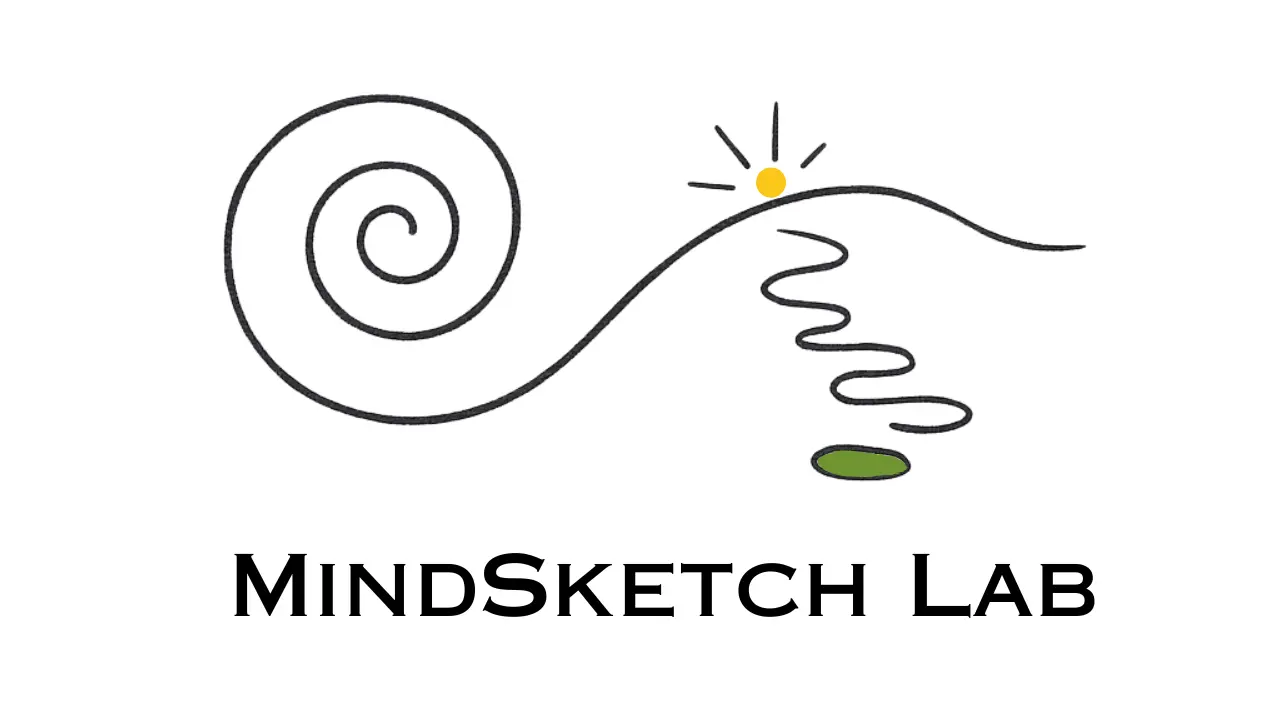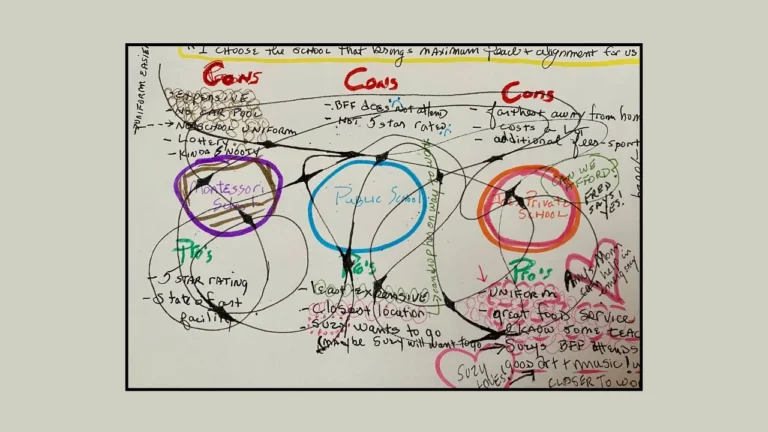The Procrastination Paradox: Unlock Creative Flow With The Artist’s Way
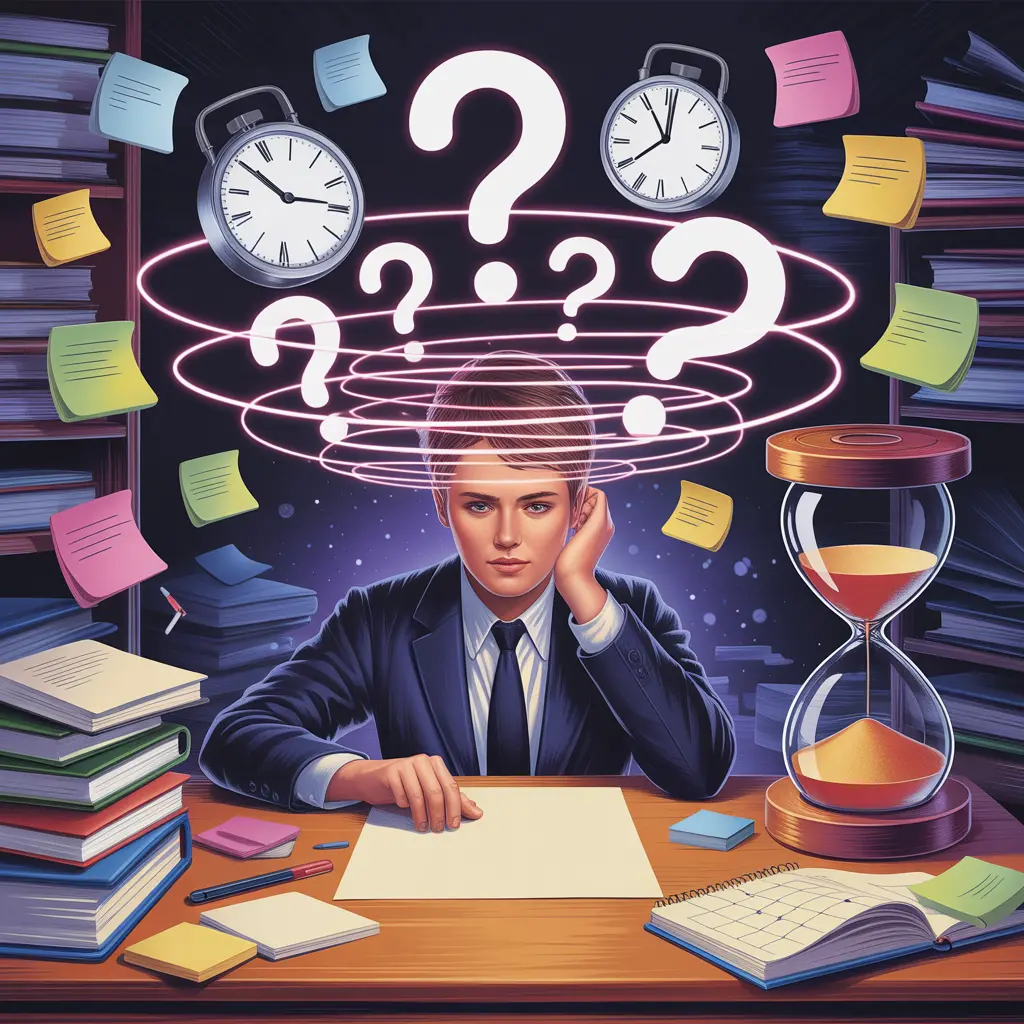
This 2025 guide explains how to overcome creative procrastination using simple tools from The Artist’s Way—Morning Pages, Artist Dates, and short focus blocks—to build daily momentum without burnout.
Ideas pile up, nothing gets finished, and your self-doubt gets louder. You live in this noisy world, and feel the stress every time you open your phone or the news.
Drawing from classic writer’s self-help books, in this guide you’ll see why procrastination feels safe and how to make it less tempting. I’ll show you how the the Artist’s Way, written by Julia Cameron in the nineties, has been life changing to me and many.
Learn to reset your mind, begin your creative recovery, and get moving again.
This is part of MindSketch Lab’s Focus Lab series, built for people who need calm structure and a kind push.
The Procrastination Paradox: Why Delay Feels Safe and Hurts Your Best Work
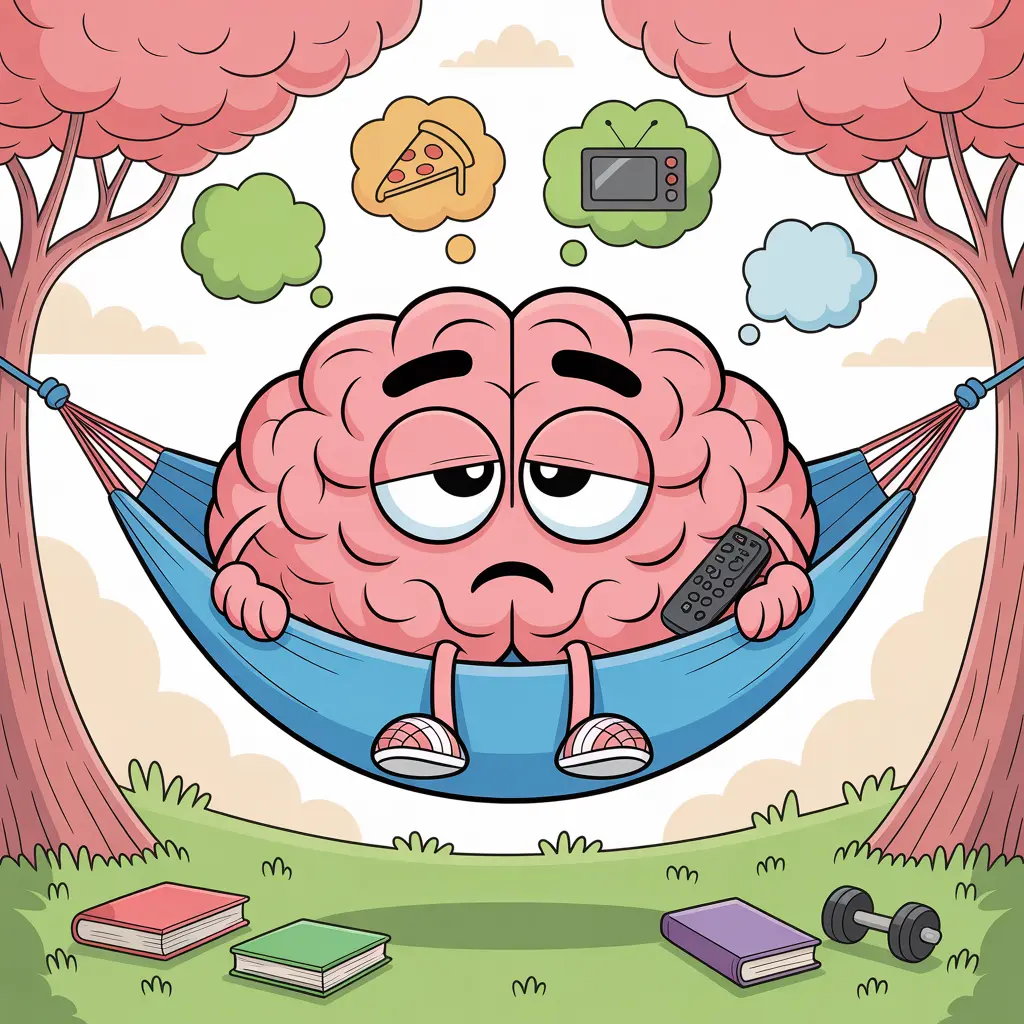
Your brain is not lazy, it is protecting you
Your brain scans for threat all day. New work feels risky, not because you are weak, but because your mind links risk to possible pain, like self-criticism or failure, which stirs negative emotions.
Delay lowers the risk, at least for a moment, offering a quick form of emotion management so you get a hit of relief.
You might avoid drafting an email pitch because feedback could sting. That small delay feels safe, but chronic delay creates creative blocks, blocking growth, income, and joy.
You do not need to fight your brain. You can give it better options that feel safe and still move you forward.
Spot the real blockers today: vague goals, overthinking, low energy, decision fatigue
Use this quick scan to find your friction, then try a tiny fix.
- Vague goal: “Work on blog.” Tiny fix: “Write 100 words by 9 a.m.”
- Overthinking: Endless tabs and notes, often driven by perfectionism that creates high-friction starts. Tiny fix: 10 minutes to start, one pass only.
- Low energy: Afternoon slump. Tiny fix: short walk, water, 50/10 timer.
- Decision fatigue: Too many choices. Tiny fix: choose one task the night before.
- Fear of judgment: Worried it is not good, often tied to self-limiting beliefs. Tiny fix: private draft first, feedback later.
Before I end my work day I make a handwritten note and leave on my clean desk for my next day’s work. This note lists the top 3 things I need to get done tomorrow.

Find Your Focus Type
Pick the focus type that fits your current mental mess — no judgment. Just awareness. Are you the:
- Overthinker
- Multitasker
- Reactor
- Perfectionist
- Scroller
Artist’s Way and procrastination: reframe fear into play and steady practice
The Artist’s Way gives you simple tools that lower fear and raise curiosity.
Morning Pages turn down the volume on anxious thoughts. Artist Dates refill energy and restore a sense of play. A weekly rhythm makes action feel normal, not heroic. Gentle steps win. Force backfires.
Self check: Are you stuck in idea loops with no output?
Say yes or no.
- Do you research for hours but avoid a 10 minute start?
- Do you restart plans each week without shipping anything?
- Do you wait for motivation instead of using a timer?
- Do you keep goals fuzzy to avoid possible failure?
- Do you feel tired before you even begin?
Pick one small change to try today. Keep it tiny so you can feel a quick win.
Try this free Soft Landing Kit as a warm-up exercise.
You will receive a 7 day supply of writing and drawing prompts to get you started. This removes the ‘white canvas’ syndrome many face when looking at a clean white canvas or a new project!

Find Your Focus Type
Pick the focus type that fits your current mental mess — no judgment. Just awareness. Are you the:
- Overthinker
- Multitasker
- Reactor
- Perfectionist
- Scroller
Tools from The Artist’s Way that crush procrastination and unlock flow
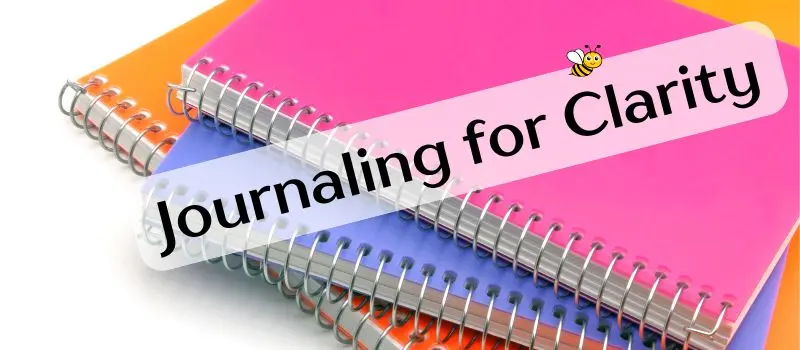
Morning Pages: 3 pages longhand to clear the noise and find focus
Write three pages by hand each morning. No audience, no edits, no pressure. It usually takes about 20 minutes. Do not reread your pages for the first 8 weeks. The point is clearing mental clutter, not producing literature.
Writing morning pages vigilantly for me began 30 years ago. This is something I used to do every single morning.
Finding time to write every morning meant setting the alarm for 5AM to squeeze writing into a busy schedule which included two paying jobs and starting a new business.
My biggest wins from writing daily included:
- Less rumination
- Better and faster decision-making
- more productivity
- less worry
If you can’t comprehend writing 3 long-hand pages do 10 minutes or one page to start. Consistency beats perfection.
Artist Date: a weekly solo play date that refills your creative well
Take yourself out alone for a minimum of 60 to 90 minutes once a week, phone off. Keep it cheap or free. Ideas: pull a stack of books at the library, take a color hunt in a thrift store, photograph circles on a walk, watch clouds with a sketch pad.
I used to do 4 hour blocks of time. Somedays I would go into the city and just walk and walk and walk somedays. I would browse high-end shops and leave feeling so inspired I thought my head may explode! In a good way!
Other times I would go to my favorite museums on ‘free afternoon’ days. My library also offers museum passes for free or reduced entry fee.
Find something new to visit! Joy and novelty lower resistance, while nurturing your Inner Artist, the playful part of yourself that thrives on exploration.
When your well is full, the next work block feels easier because your brain associates work with curiosity, not threat.
A 12 week map, community support, and your Focus Lab
This program is a 12 chapter, 12 week practice. Each week builds gently, with small tasks, reflection, and a new theme.
You can get structure and accountability inside the Focus Lab at MindSketch Lab.

My goal when I started The MindSketch Lab was to help distracted people focus using Neurographic Art and The Artist Way.
Why? Because here in the USA anyone who is paying attention in 2025, is completely distracted, scared, and worried about what the government is doing to our country.
It is important to me that anyone who wants access to The Artist Way can afford it. So rather than charge exorbitant prices to facilitate The Artist’s Way I include this for free in my $9 monthly membership program.
Reduce friction with simple systems so you start faster
Try four small habits that make starts automatic.
- Phone in another room during work blocks.
- 50/10 focus sprints, 50 minutes on, 10 off.
- Tiny targets, like 100 words or 15 product photos.
- End of day reset, pick tomorrow’s first task and lay out tools.
Common mistakes:
- Waiting for motivation
- Planning giant goals – which often lead to creative U-turns (frustrating cycles of starting and stopping)
- Confusing planning with doing. .
Your 7 day starter plan to reset focus with The Artist’s Way
This plan is small, repeatable, and built for a busy week. You will write, refill your well, and ship one tiny deliverable.
Day 1
Find a comfy place to sit with your notebook or journal, a favorite pen, and a cup of your favorite morning beverage. Find the most comfortable spot you can because you will be returning to this spot each morning.

Day 3 to 4: Run Morning Pages and track your wins
- Anchor your Morning Pages, the daily brain dump practice from The Artist’s Way, to a cue you never miss, like coffee or breakfast.
- Keep your notebook and pen where you sit in the morning.
- Use this time to dump whatever is on your mind to ensure you start the day with a clean slate
- This plan relies on small daily steps to build steady progress in your writing and tracking.
If you struggle to show up, practice self-regulation by setting a 10 minute timer and writing anything that crosses your mind, this will help build habits your creative habits. Bored pages still count.
There were many days in the beginning I would write ‘I don’t know what to write’ over and over again until I knew what to write.
Day 5 to 6: Take your first Artist Date and ship something small
Book a 60 minute Artist Date, the solo play date from The Artist’s Way to spark inspiration. Don’t let low finances prevent you from doing this. There are lots of fun thing to do for free or low cost.
- Try a neighborhood walk to photograph textures
- Visit a library in another town
- Try a quiet hour at a museum’s free day
- Wander in nature aimlessly – unplugged.
- Visit an animal shelter or zoo
- Do a random act of kindness
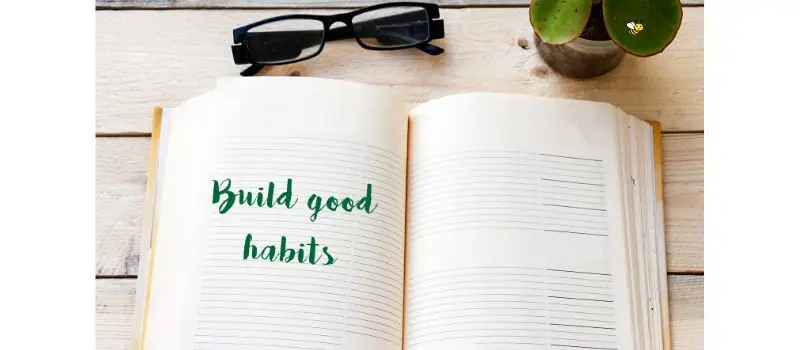
Day 7: Review, reset, and plan week 2
Answer five prompts.
- What helped?
- What hurt?
- What was my smallest win?
- Where did I feel energy?
- What is my next tiny target?
Change an unhelpful habit for next week, like charging your phone outside the bedroom or laying out your notebook at night. Put next week’s Artist Date and Morning Pages on your calendar now.
Who is the Artist Way for?
You fit if you have self – sabotaging procrastination patterns:
- Low confidence due to high standards
- Fear of judgment that triggers shame spirals and delayed starts
- Poor decision-making skillls
- IRecurring thoughts in your head
- If you keep restarting The Artist’s Way
- You want gentle structure, tiny wins, and community support
- You want to stop hiding and start shipping.
Who this is not for and the method’s limits
The Artis’s Way is not a crisis tool or a replacement for medical or clinical care.
It is not a cure for ADHD or depression. The program helps manage emotional triggers, but pair your practice with professional support when needed.
Morning Pages support action, they do not replace action. Keep doing small visible work each week.
Limitations: The Artist’s Way is not a quick productivity fix. It works best with consistency, reflection, and emotional safety. If you face burnout or trauma, pair it with therapy or coaching.
Always seek professional help when needed. Many people share their Morning Pages with therapists.
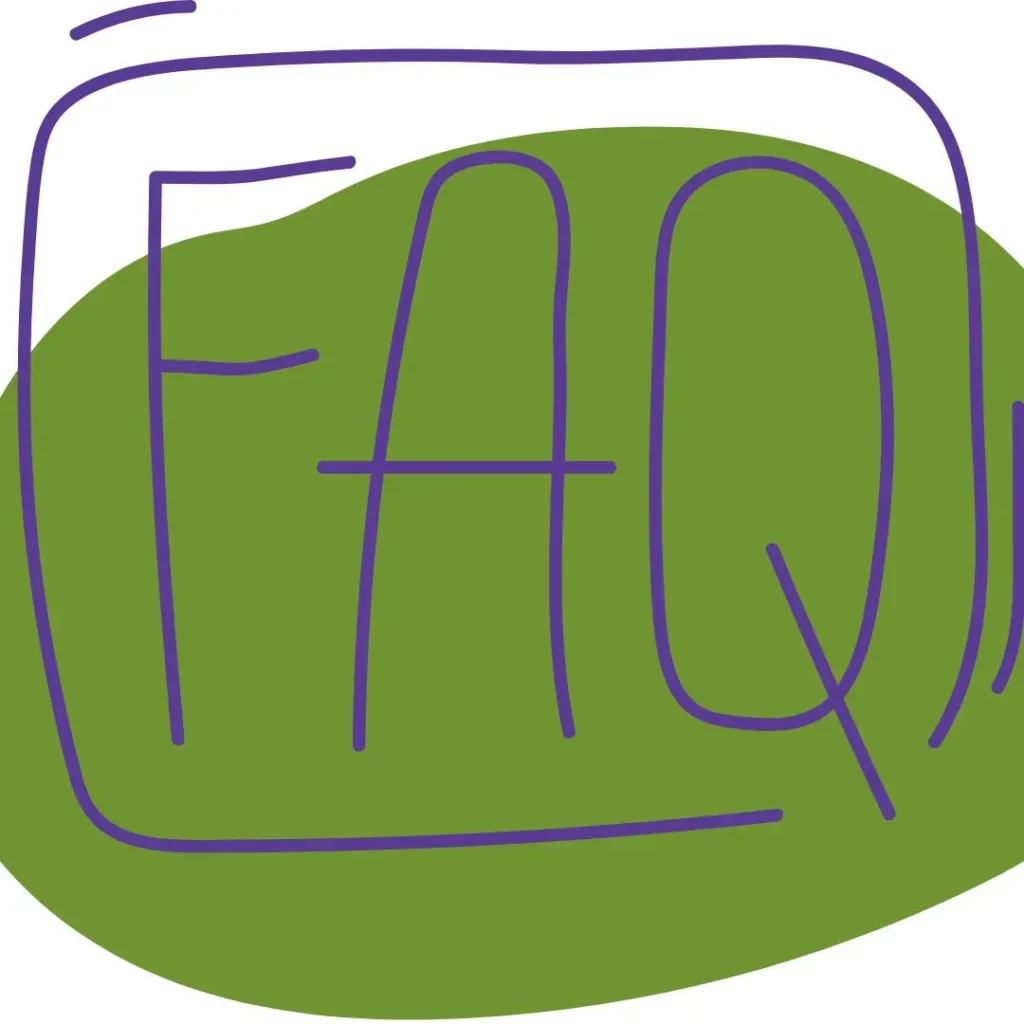
Yes, it can help you overcome procrastination. Many readers report clear gains because Morning Pages reduce rumination and Artist Dates restore energy.
Many people feel a calmer mind within 7 to 14 days, easing the addiction to anxiety from rumination and mental blocks. Focus and faster starts often show up within 30 days.
Use a basic spiral notebook and a pen. Borrow the book from your public library or buy used. Join community groups or MindSketch Lab for guidance and support.
The Artist’s Way welcomes all beliefs. If religion isn’t your thing you can do what many do which is to ‘Take what you need and leave the rest’.
Yes. Libraries, free museum days, neighborhood photo walks, thrift store color hunts, bookstore browsing, or a park bench with a sketch pad. Novelty and solitude matter more than money. Try something free or cheap and new!
ReCap
You can quiet the noise, make a small start, and keep going.
Pick a start time for Morning Pages tomorrow, then book a simple Artist Date this week.
If you want steady support, explore the Focus Lab at MindSketch Lab, built to stay within reach. Keep the Artist’s Way and procrastination tools simple, keep targets tiny, and ship something each week.

Your work grows when you get out of your own way and let steady practice carry you. Before I started the Artist Way I was a fearful, hard working, frustrated lady.
As a self supporting single artist I now am a more confident, content, almost peaceful, vibrant member of my communities. Hey, It is progress – not perfection!
When I am not at work in my art studio or at my desk you can find me a few houses down at the lighthouse with my treasured puppies!
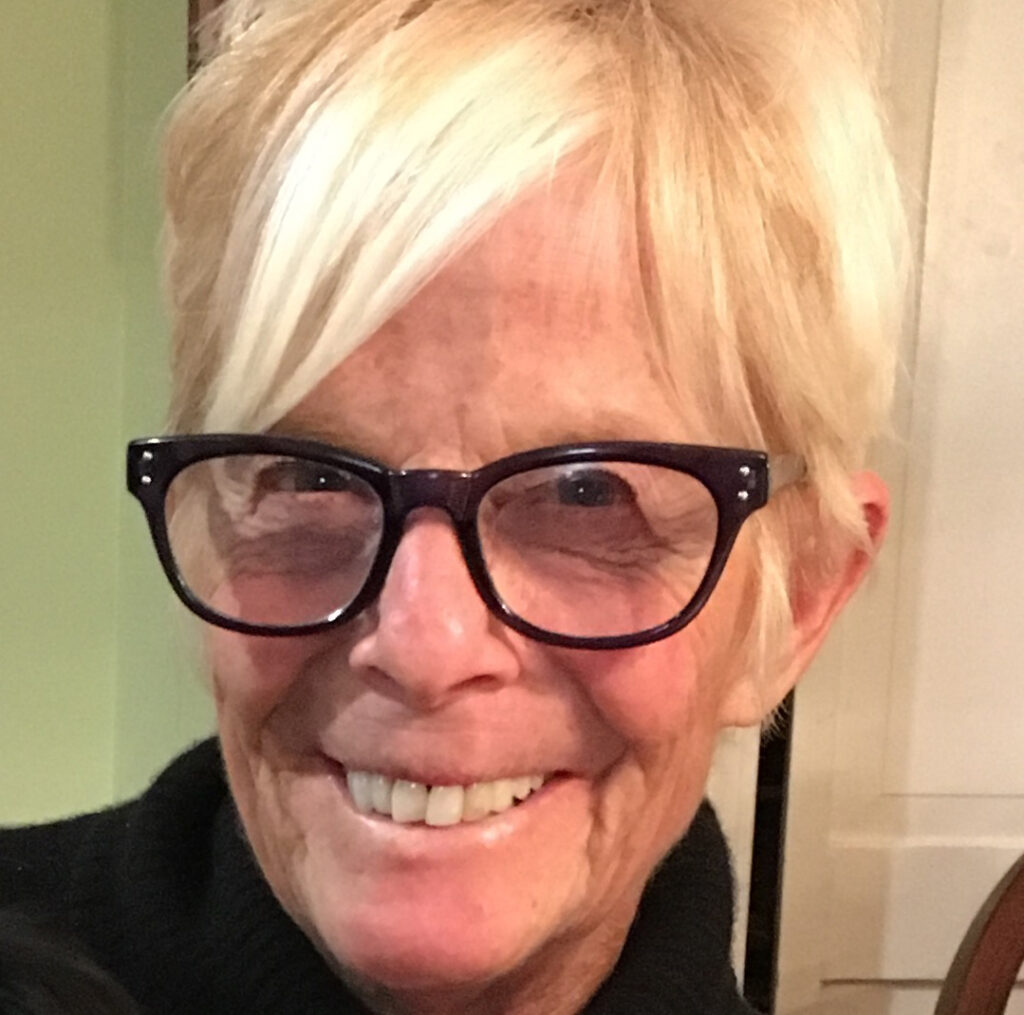
Marj Bates has spent years practicing and helping people clear both mental and physical clutter. A lifelong artist and peace-seeker, she weaves together neurographic art, The Artist’s Way, other time-tested practices, and her own story into one gentle space: The MindSketch Lab.
“Marj’s now shares her methods through The MindSketch Lab, helping others quiet mental noise and rediscover focus through creative practice.”
Bring your stuckness, your unsettled mind, and a sketch pad.
Learn to quiet the noise, soften the fear, and release what’s holding you back.
No art skills required—promise.
Art journal your way to clarity with us in our safe and private community, MindSketch Lab on Facebook
